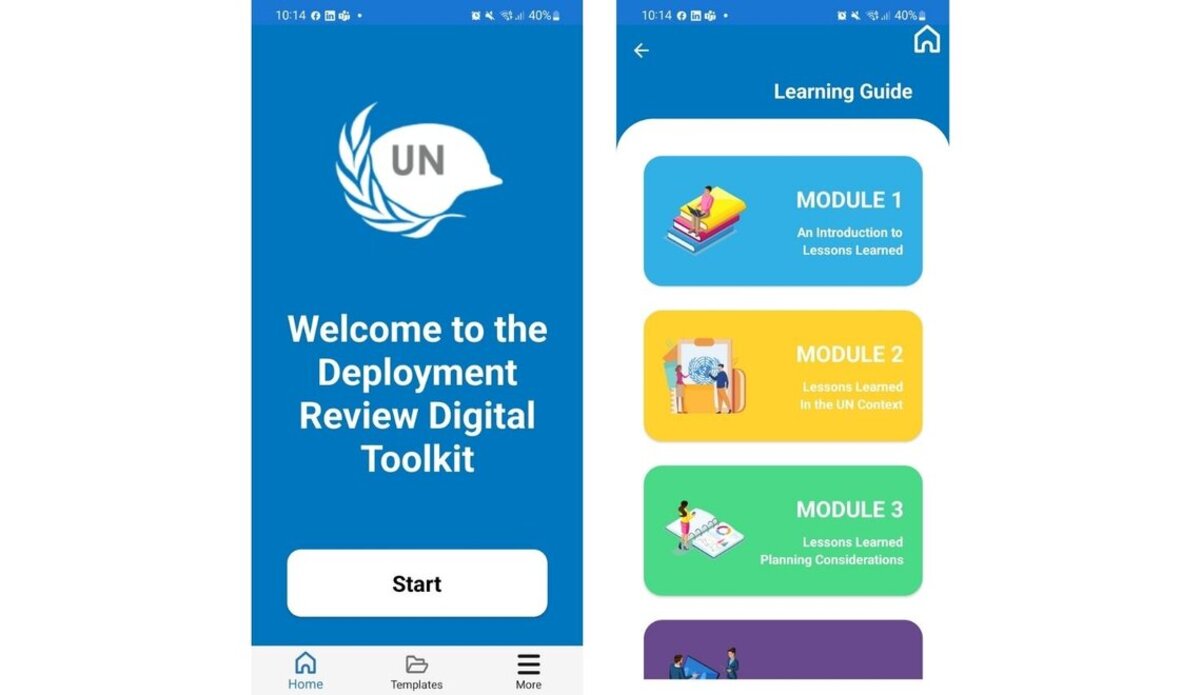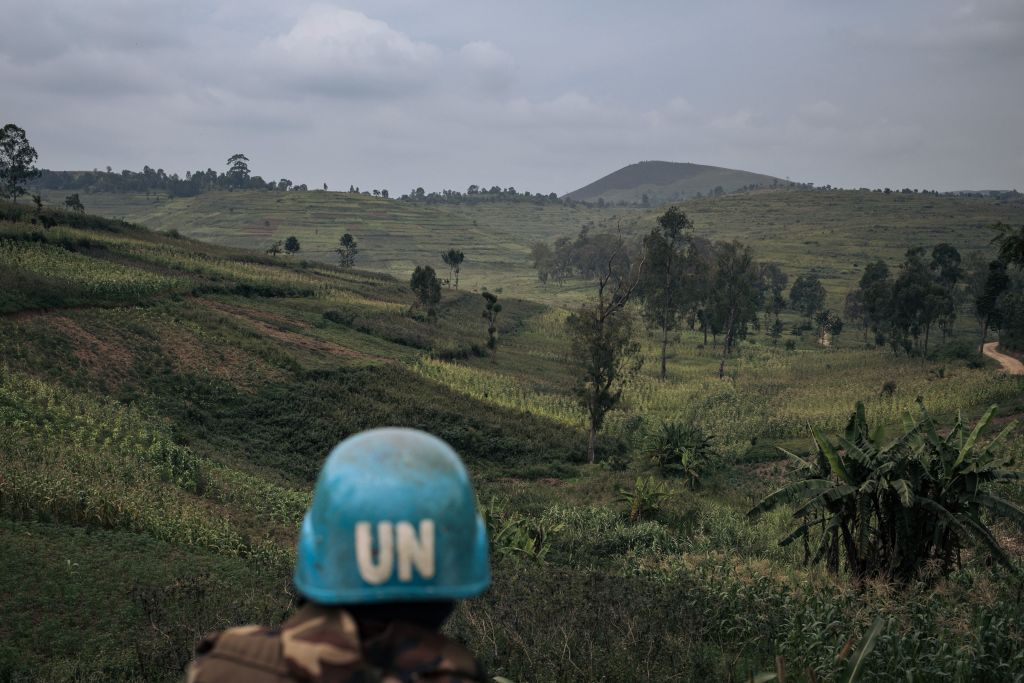ADF STAFF
The United Nations has deployed new technology designed to help peacekeepers pass along valuable lessons and key experiences from the field to build a collective understanding of the risks and best practices in countries where they are deployed.
First released in 2022, the publicly available Deployment Review Mobile app provides guidance regarding important U.N. peacekeeping duties such as observation and includes online templates for gathering data.
However, the primary purpose of the app is to pass along vital operational data in the form of “lessons learned” files that build institutional memory and help future peacekeepers as they rotate in every six to 12 months.
“Knowledge of past errors can help prevent future ones,” analyst Heidi Hardt wrote in her 2018 analysis of how international organizations such as the U.N. can employ institutional memory to improve deployments.
According to the U.N., users can capture and analyze data as well as review the successes, innovations and challenges they faced during their deployments. The goal is to improve training, preparation, and support of future deployments.
“The app is also a reflection of how digital technologies present new opportunities to improve the effectiveness of peacekeeping operations,” Hana Smith, of the U.N. Peacekeeping Office’s Light Coordination Mechanism, wrote recently in Medium.

The app is available on mobile phones and tablets, making it possible for users to download report templates, complete them and file them via email from the field in real time or near real time, depending on the availability to communications.
The same is true for “lessons learned” reports, which form the core of the U.N. process of improving its response to peacekeeping issues.
The app has come along as the U.N.’s peacekeeping presence on the African continent is decreasing. Mali’s ruling junta has forced the U.N. to end its mission there by the end of June. The Democratic Republic of the Congo has made a similar demand for the peacekeeping mission there to wrap up by the end of this year.
The U.N. continues to operate peacekeeping missions in the Central African Republic, South Sudan, Western Sahara and the contested Abyei region on the border between Sudan and South Sudan.
In the case of the DRC, the Southern African Development Community has stepped in to supplement the Congolese military’s efforts against the M23 rebel group and more than 100 other militias operating in the country’s eastern provinces.
As an example of how the new app can influence peacekeeping operations, Smith pointed to the United Nations Organization Stabilization Mission in the Democratic Republic of the Congo. In 2014, reports of an increase in organized crime led the U.N. to launch a community policing project with local law enforcement that brought crime down between 2016 and 2018 and increased trust between citizens and police.
“Through examples like this, which feed the new application, learning from past experiences provides an opportunity for continuous improvements to be made in United Nations peacekeeping through collective efforts made by all involved,” Smith wrote.

